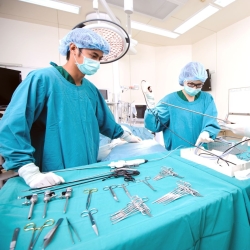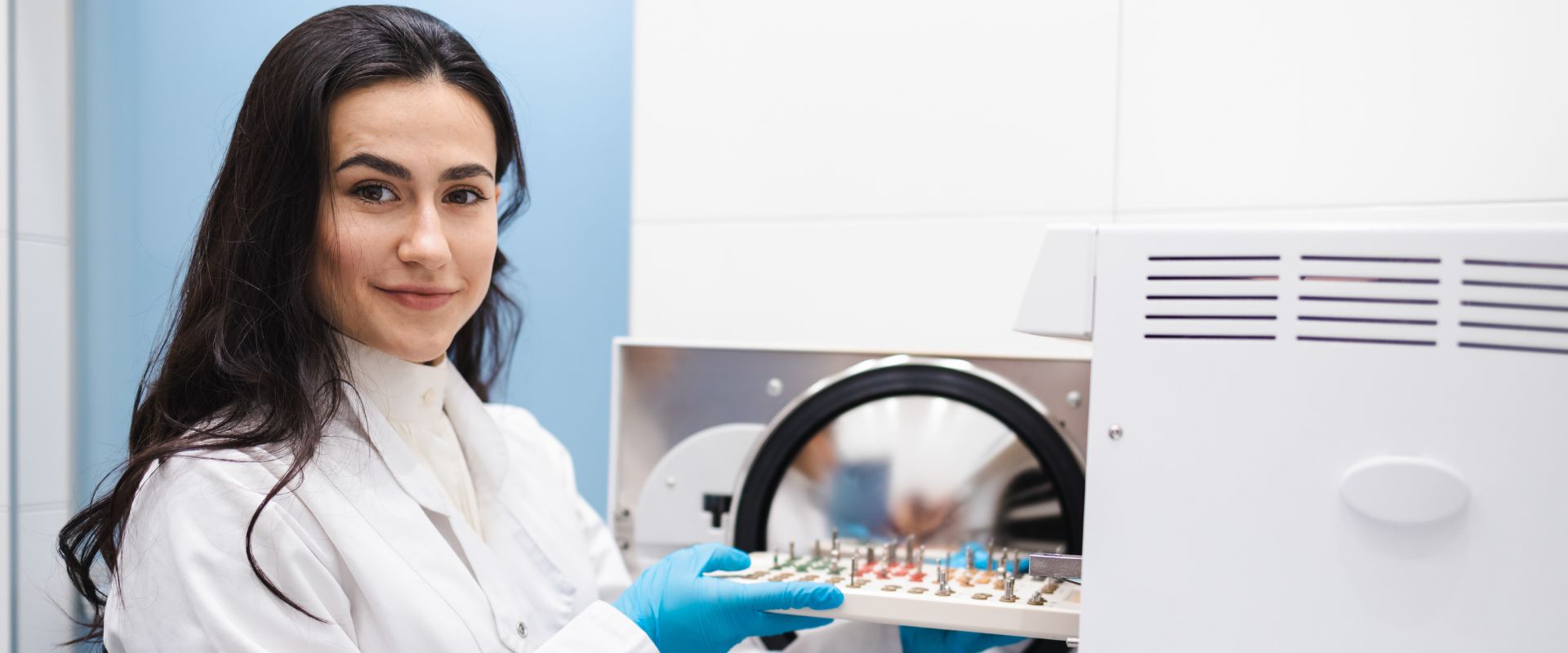Sterile Processing Technician Online Course
The Sterile Processing Technician online course trains you for a vital behind-the-scenes role in patient care. You’ll learn how to clean, sterilize and manage surgical instruments and equipment in hospitals and clinics. This flexible program includes online coursework, support from industry experts and the opportunity for a volunteer externship to gain real-world experience. Designed for beginners, the online course prepares you for national certification and entry-level employment.

Online Course
Take the course online, on your schedule

How to Register
How to start taking the online course

Contact Us
Get your questions answered
About the Online Course
Benefits of the Sterile Processing Technician Online Course
Flexible Online Learning
Study on your own schedule with mobile-ready coursework designed to fit your life and responsibilities.
All Materials Included
Tuition covers all textbooks and learning resources.
24/7 Support
Access help whenever you need it with around-the-clock learner support.
National Certification Preparation
Get ready to sit for the Certified Registered Central Service Technician (CRCST) exam through the Healthcare Sterile Processing Association (HSPA).
Hands-on Experience
Gain real-world skills through an optional volunteer externship coordinated with a local healthcare facility.
Career-Focused Skills
Learn essential skills in hospital and surgical environments, including infection prevention practices, how to sterilize surgical tools and how to manage medical equipment.
Cost and Length
Cost: $1,999
Length: 4 - 6 Months
When to Start: Self-Paced, Start Any Time
Payment Plan
Health Ed Today offers 3-, 6- and 10-month payment plans.
Certification Opportunity
After completing the Sterile Processing Technician course, you’ll be eligible to take the Certified Registered Central Service Technician (CRCST) exam, offered by the Healthcare Sterile Processing Association (HSPA)—a leading organization in the field.
This nationally recognized certification is often required or strongly preferred by employers. It shows that you have the knowledge and skills needed to work in sterile processing roles across hospitals, outpatient centers and surgical clinics.
The program is designed to prepare you for success on the exam by covering key areas such as:
- Infection control and sterilization techniques
- Anatomy, physiology and microbiology
- Instrument handling and inventory management
- Safety procedures and regulations
While certification is not guaranteed, completing this course provides a solid foundation for passing the CRCST exam and starting your career with confidence.
Externship
You may choose to take part in an optional volunteer externship with a local organization in your field to gain hands-on experience. Externship sites may require additional documentation such as health records, immunizations, drug screening or background checks. After completing your program, you can contact the Health Ed Today Externship Coordinator at mentor@healthedtoday.com to arrange placement.
About the Sterile Processing Technician Profession
Sterile processing technicians play a critical role in patient safety by ensuring that surgical instruments and medical equipment are clean, sterile and ready for use. They work behind the scenes in hospitals, surgical centers and outpatient clinics, supporting surgical teams and other healthcare professionals.
What Do Sterile Processing Technicians Do?
- Clean and sterilize surgical instruments and tools
- Assemble and package equipment for procedures
- Monitor inventory and manage sterile storage areas
- Follow strict infection prevention and safety protocols
- Support patient care by maintaining a safe surgical environment
Where Do They Work?
- Hospitals
- Outpatient surgery centers
- Clinics and medical offices
- Laboratories and specialty facilities
Skills That Matter
Success in this role requires attention to detail, good communication, strong organizational skills and a commitment to safety and cleanliness. Technicians must understand anatomy, infection control and sterilization standards.
